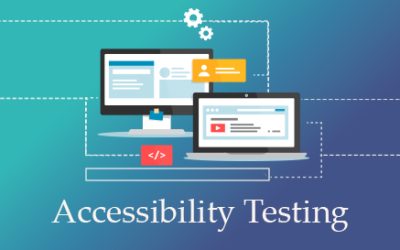One of the industries that need multifaceted software development is the healthcare industry. It has always been a competitive industry, and outsourced medical software development services have been receiving more and more projects as a result.
From 2020, the Covid-19 pandemic has increased the burden on the healthcare industry. Threats of new waves of the pandemic are still rampant. So, the pressure on the healthcare system is likely to be severe in the months to come, particularly with the legal requirements of billing and coding added to the equation. Hospitals and physician clinics need high-tech solutions to help them carry out day-to-day functioning and for updating patients’ electronic health records (EHR).
What Healthcare Software Development Aims At
The three major goals of medical software development with respect to physician clinics, hospitals and nursing homes are:
- Improving health outcomes for patients
- Making patient experiences better
- Increasing security and accuracy of data management
- Reducing operating costs
The focus for the US healthcare industry is shifting from increasing volumes of patients to ensuring more value for patients. A value-based model leads to greater patient satisfaction which does improve ratings and eventually increases the number of patients visiting your practice. Specialized software can significantly help in this quest.
Multifaceted Aspects of Healthcare Software
The following are the various aspects of healthcare software development:
- EHR SoftwareAs you’d have realized, EHR software helps in maintaining and managing patient data in the electronic records. Information updated includes the patient’s medical history, demographic information, lab results, allergies and other medical information.
- Healthcare CRMHealthcare CRM (customer relationship management) deals with maintaining and improving the relationship with clients which, in this case, involves patients. Performance reports and contact management are part of it.
- Hospital Management SoftwareThis includes technologies for managing various aspects of a hospital including billing, patient information management, administrative tasks, insurance, etc.
- Medical Practice ManagementThis software includes technology for optimizing day-to-day operations such as accounting, setting appointments, maintaining medical records, financial management, and ensuing smooth clinical workflow.
- E-Prescription SoftwareThis contains the technology for sending prescriptions to pharmacies and drug stores directly. It is particularly helpful for patients.
- Emergency CareThis primarily involves apps that enable patients to secure emergency aid even without visiting the doctor’s office.
The software requirements vary according to client needs. If you are running a physician clinic, your requirements may be focused more on day-to-day medical practice management. However, if you’re in charge of a hospital, there are wider requirements for you to deal with including healthcare CRM and EHR software. But the point is, software solutions of some kind are absolutely essential. In fact, the healthcare software development market is expected to grow at a 5.8% CAGR and reach the value of $19.3 billion by 2025. With dedicated software providers, you can get comprehensive services or specific task-oriented software solutions.
Trends Facilitating Increased Demand for Healthcare Software
Healthcare spending is rising due to various factors:
- The rising occurrences of non-communicable diseases such as cancer, cardiovascular disease, diabetes, etc.
- The rise in frequency of various epidemics and pandemics
- The growth of an aging population 65 years of age and older
- Widespread digitization that has resulted in electronic health records (EHRs) and digitized databases
- The emergence of artificial intelligence (AI) and machine learning and the realization of their potential to improve day-to-day functioning
- Expansion of global healthcare companies into emerging markets such as Africa, Middle East and Asia
- The rising importance of personalized and customized healthcare and patients’ interest in adopting them
- The importance of mobile apps in providing patients with care right in their homes
It’s clear that spending has increased and is bound to increase further in the years to come. With effective healthcare software development, hospitals and healthcare practices can adopt many of these trends in a cost-effective manner and improve their performance and earnings.
Telemedicine
Healthcare organizations can also increase their publicity by offering their clients patient-centric software solutions that cater to their chronic health conditions. That’s where telemedicine comes in. Provided through patient apps, telemedicine facilitates virtual doctor consultations. Monitoring and tracking apps are around to help patients evaluate their condition by themselves. There are also chatbots powered by artificial intelligence that can converse with patients to help them understand their condition better.
Advanced software development mostly involves creating highly customized apps and software. For practices and hospitals with unique requirements, that’s just what they need. Healthcare digital marketing services provided by an experienced outsourcing company can take your organization successfully through the problems it is going through.




